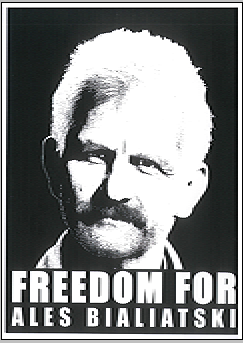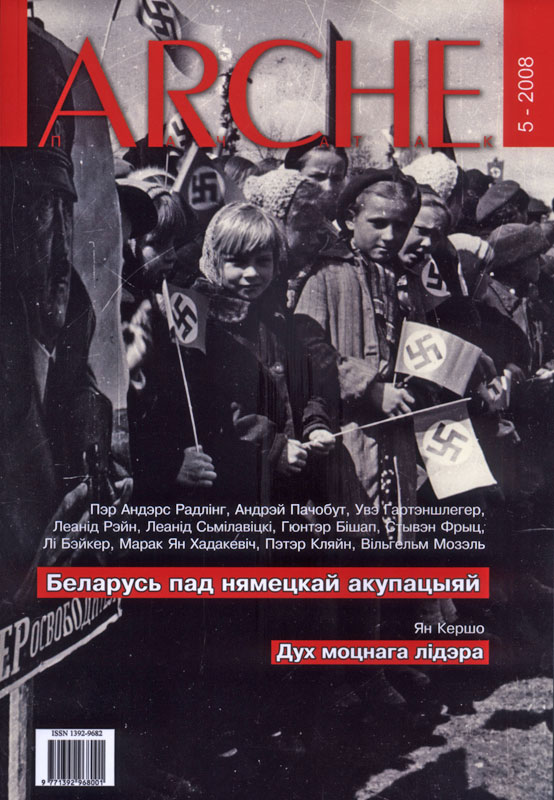Index relies entirely on the support of donors and readers to do its work.
Help us keep amplifying censored voices today.
On the second anniversary of the Minsk protests, Index calls for the immediate release of all political prisoners in Belarus (more…)
On 19 December 2010, thousands gathered to protest against rigged presidential elections. In response, Lukashenko’s forces staged a brutal crackdown, arresting dozens of political opponents and activists, including seven presidential candidates.
Index immediately set up a campaign to free the jailed political prisoners. Through targeted social media, news articles, blogs, protests and events, Index brought the situation faced by ordinary Belarusians to the attention of the international community. We worked with partners such as the Belarus Free Theatre and Free Belarus Now to stop international banks selling Belarusian government bonds; we lobbied the UK government and EU to institute sanctions; and at our 2011 Annual Awards we honoured all those detained.
After 18 months of persistent campaigning, in April 2012, Belarus caved in and political prisoners, including high-profile opposition leader, Andrei Sannikov, were released. All of this was possible because you helped us. But the story doesn’t end here….
This holiday season activist Ales Bialiatski is still in solitary confinement in Belarus. He recently told Index how just receiving photos and cards from our supporters on his 50th birthday let him know that people are fighting for his cause and keeping international attention on his plight.
Arche, Belarus’s only monthly magazine published in Belarusian faces closure after the state authorities froze its bank accounts and launched criminal proceedings against its editor.
Arche editor Valery Bulhaku was detained on 14 September while giving a talk in the city of Hrodna, a regional centre in western Belarus. More than 5,000 books and other publications were seized during a search of his home.
He has been accused of “illegal business activities”, and the Department of Financial Investigations is conducting an in-depth inspection of the financial activities of the magazine. Other investigators are searching for “extremist ideas” in the confiscated books and journals.
As is often the case in Belarus, state TV ran severely biased coverage of the story, screening supposedly investigative pieces for several days about how Arche’s publishers had not only broken company law but had violated the Criminal Code. The TV stories accused the publishers of “dubious interpretation of the history of Belarus during fascist occupation”.
(more…)
In Belarus there are only two positions that are officially allowed to have a title of “President”. The first one is the head of the state, the other one is the head of the National Olympic Committee. Both posts are taken by the same person — Alexander Lukashenko. But he is not coming to London in either of his roles. He is banned from entering the European Union over the fraud during the presidential election in December 2010 and the subsequent crackdown on the country’s civil society.
“The entry ban will remain in force during the Olympics and the decision on the matter will not be changed,” the UK embassy in Minsk told BelaPAN Information Agency.
Jacques Rogge, the head of the International Olympic Committee, said today his organisation respects the decision of the British Home Office to deny London Games accreditation to Lukashenko.
The ban hardly came as a surprise, and Mr Lukashenko, often referred to in Western media as “Europe’s last dictator”, fired back with his ideological response. During the opening ceremony of the Slavic Bazaar festival in Vitsebsk, Belarus, he claimed that event was much better than the Olympic Games.
“The Olympics clearly lack behind our Slavic Bazaar,” the Belarusian dictator stated as he accused the London Games of being politicised, while calling the festival he hosts “an island of freethinking and independence.” Well, he forgot to mention that outside the stages of this “freethinking island” there are his political opponents that are still in prison.
The annual Slavic Bazaar festival is often said to be one of the main mass cultural events in Belarus, which brings together a lot of artists, mainly pop stars from the former Soviet countries. The Belarusian president always uses it for his ideological purposes, and sometimes for dancing with Russian pop stars. It all is meant to add to his image of the great and caring “father of the nation”, who is close to his people and brings entertainment to them.
This year, however, this ideological message from the Belarusian version of “an island of freethinking and independence” was damaged. The troublemaker was pop star Loreen. The Swedish singer, who was invited to Vitsebsk as the winner of this year Eurovision song contest, clearly spoilt the president’s party as she delivered a strong message in support of human rights in Belarus.
Loreen met a group of Belarusian activists and journalists in Minsk, including Natalia Pinchuk, the wife of Ales Bialiatski, one of the most prominent Belarusian human rights defenders, who serves a term in prison.
“Without freedom of expression I would never have been a singer. I wish that there were no political prisoners in Belarus and that human rights defenders like Ales Bialiatski could continue their important work. He and his colleagues are sacrificing everything in the struggle for human rights and they deserve support from the outside world,” Loreen said in a press statement.
After the statements like this Loreen risks to become persona non-grata to the authorities in Belarus — as Lukashenko himself is in the European Union.
The dictator will stay home inventing “Slavic bazaars” to entertain himself, while pretending they are better than the Olympics.
Andrei Aliaksandrau is Index on Censorship’s Belarus and OSCE Programme Officer